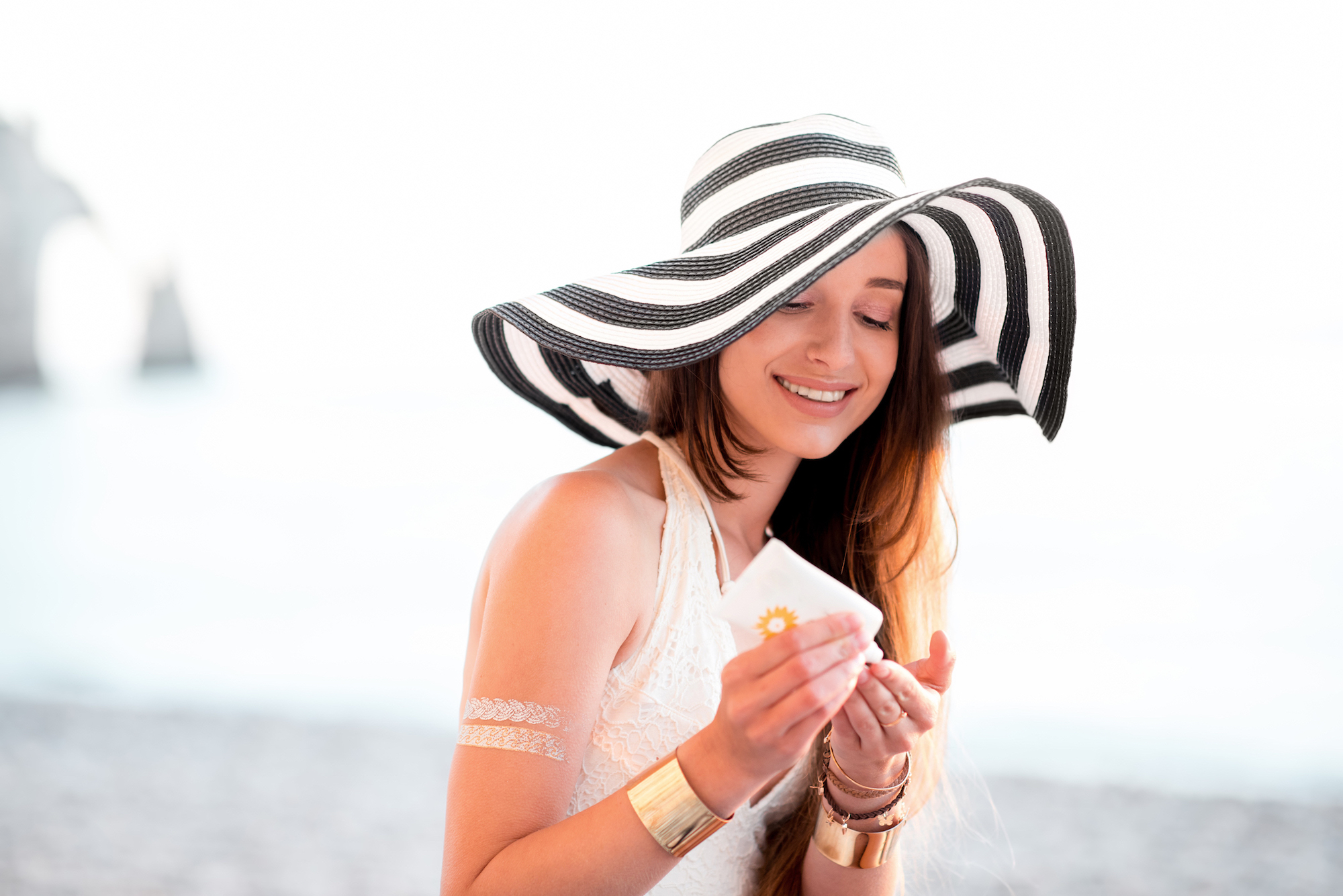
Sunscreen is one of, if not the most essential part of your skincare order and routine. When and how you apply it has a significant impact on your skin’s overall health. That’s because 90%, yes almost all, skin changes come from exposure to the sun’s rays over time.
The sun is not the enemy, at Radiant Divine Medical Spa we love fun in the sun as much as the next person. But protecting your skin is crucial! That’s why we’re here to bust myths and clear the air.
Everything you ever wanted to know about sunscreen and skin care: let’s go!
Let’s get to the bottom of it: when should you apply sunscreen in your skincare routine?
When it comes to skincare order: sunscreen should be the star of the show, the grand finale. It goes on last after everything except makeup.
Sunscreen goes on top of all your other products so that it actually works and isn’t compromised by ingredients in your other products.
Quick note: what is SPF?
SPF is an acronym that stands for “sun protection factor,” and it does exactly what that implies. It protects your skin from the sun.
Did you know:
SPF refers only to the protection factor against UVB rays. You should look at a sunscreen’s PA rating for protection from UVA rays! The PA system ranks sunscreens with pluses and they range from 1 to 4 pluses.
Why is SPF so important to skincare?
Like we said, 90% of skin changes, including signs of aging, are due to exposure to the sun over time. That’s why your mom, your aesthetician, and your mom-friend with gorgeous skin are always telling you to use it when you go to the beach.
We tend to associate wearing sunscreen with sunny park days, sitting poolside, or other longer stints of outdoor activities. But really, you should be wearing SPF every day. You don’t need to wear crazy amounts, but a daily SPF of at least 30 can help protect your skin during
Broad spectrum SPF protects from UVA and UVB rays. What are those? UV stands for Ultra-Violet. The difference between A rays and B rays is length (B rays are shorter). UVA rays are associated with skin aging, UVB rays are associated with burning.
The sun’s UVB rays are also connected to developing skin cancer in your later years. Yikes!
How does SPF work?
We know that sunscreen math can feel like a bit of mystery, so we’re here to break it down.
The number on your sunscreen tells you how long the sun’s UV rays would take to burn your skin compared to not wearing any at all. Meaning, SPF 30 means it would take 30 times longer for the sun to affect your skin. The higher the SPF also means the higher percentage of sun’s rays that are blocked in general.
This is only true when you use sunscreen as directed. That’s why it’s important to read the directions, which always say to reapply every 2 hours.
SPF should also always be used alongside seeking shade, wearing hats and covering up with clothing, and avoiding unnecessarily prolonged sun exposure.
Which version of SPF works the best?
Creams and lotions are the most effective form of sunscreen. They allow you to actually see how much sunscreen you’re applying, so you can be sure you’re applying enough.
People who use a sunscreen spray tend to use less SPF on average because they not to be as thorough with their application process.
Ok, so when and where should you be using sunscreen?
You should wear sunscreen everywhere that’s going to receive prolonged sun exposure! Of course, our SPF usage should increase during summertime, but really you need to wear it year-round!
When should you apply sunscreen in your skincare routine?
- Every day in the morning as the last part of your daily skincare order
- Every 2 hours when you’re experiencing longer exposure times
- At least 30 minutes before you’re going to be in the sun
Your face needs daily SPF all year round because it’s generally always exposed. Yes, even in winter! And don’t forget about your hands and decolletage.
Quick Guide: How to Properly Apply Sunscreen
Our Favorite Sunscreens at Radiant Divine
1. SkinMedica Essential Defense Mineral Shield SPF 32, Tinted
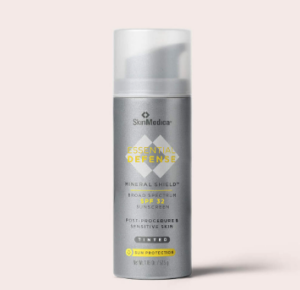
Why we love it:
- UVA and UVB protection
- PA ++++
- Hypoallergenic
- Oil free
- Fragrance-free
- Paraben free
- Non-comedogenic (won’t clog pores)
2. SkinBetter Science Sunbetter Tone Smart SPF 68
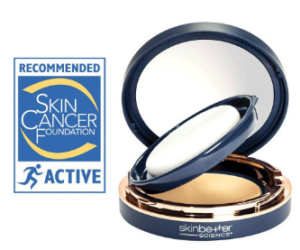
Why we love it:
- Broad spectrum 100% Mineral spf
- PA++++
- 80 min water resistant
- Includes blue light, pollution, and infrared radiation protection
- 4x award winner
- Skin tone adapting
3. ZO Daily Sheer Broad Spectrum SPF 50
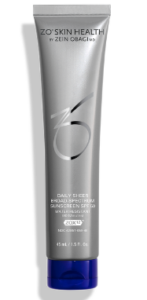
Why we love it:
- Non-greasy formula with a sheer finish
- Water resistant 80 mins
- Provides additional protection against high-energy visible (HEV) light and infrared (IR-A) rays
- Chemical SPF
- Exclusive 12 hour time-release antioxidant complex for free radical defense
- Hydrates the skin
4.SUZANOBAGIMD Tinted Physical Defense SPF 50
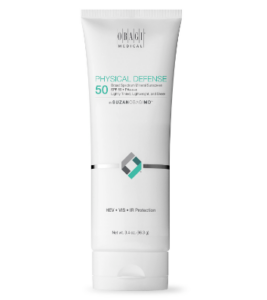
Why we love it:
- Mineral based
- Defends against HEV, VIS, IR, and free radicals
- PA ++++
- Lightweight finish
Interested in our other skincare products or want recommendations? Get started with a virtual skincare consultation.
Is medical-grade SPF necessary?
Medical-grade skincare products are a game changer when you introduce them to your skincare routine, and medical-grade sunscreen is no different!
Medical-grade products have higher amounts of active ingredients, which leads to better results for your skin!
Frequently asked questions about sunscreen and skin care:
Which SPF should I be using?
For daily SPF you should be using sunscreen with an SPF of at least 30, and use higher SPF levels when you’re going to be in the sun for longer periods of time.
What is broadspectrum SPF?
Broadspectrum SPF protects your skin against UVA and UVB rays, products that just have SPF only protect against UVB rays. They’ll prevent sunburn, but not the aging effects of the sun! You want a sunscreen that does both.
How long does sunscreen last?
Sunscreen can expire, but if you’re using it correctly, you shouldn’t end up with a bottle lasting past its expiration date! The FDA requires sunscreens to retain their original strength for at least 3 years.
How does sunscreen work with makeup?
Sunscreen should be worn under your make-up and as a plus can provide a better base for your make-up application! Make sure you give the sunscreen time to set before applying foundation or other products. To reapply throughout the day you can look into sunscreen powders or use a sponge to carefully blot your SPF on over your makeup.
My foundation has sunscreen, do I need still need to reapply it?
Yes! SPF breaks down over time, so even if your foundation hasn’t come off, the SPF will stop working.
More questions about sunscreen and skincare routines? Hit us up!
At Radiant Divine Medical Spa, our aestheticians can provide you with personalized recommendations based on your unique skin type plus use VISIA skin analysis to create personalized treatments for your skin’s needs.
Schedule your consultation to get started.
Don’t forget you can always use our virtual skincare consultation to let us know more about your specific concerns before visiting the office!
Interested in exploring all of our skincare and aesthetic options? You can use our general virtual consultation tool to see all we have to offer! Developed by our expert providers, it lets you self-select your areas of interest and receive customized recommendations right to your inbox 💌